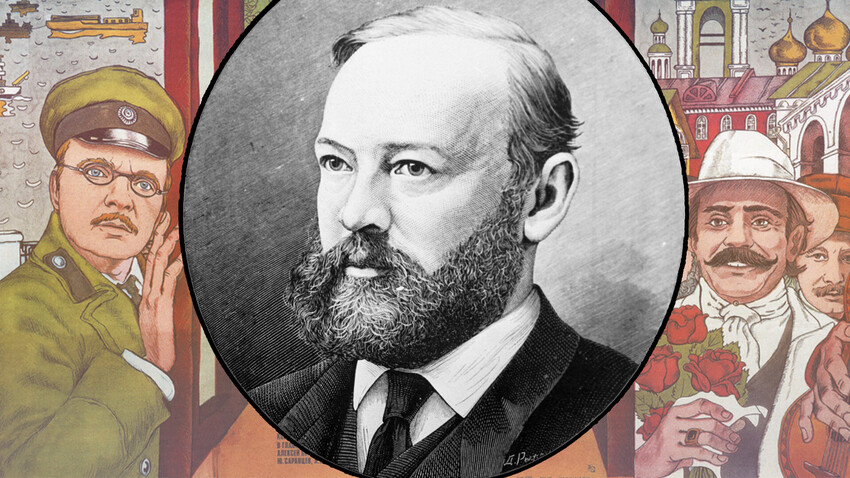
One of the first comedies by Alexander Ostrovsky (1823-1886) - ‘It’s a Family Affair - We’ll Settle It Ourselves’ (1849) - describes the financial machinations of a Moscow merchant. He declares himself bankrupt in order not to repay a loan. He, himself, is cheated, in turn, by his own assistant.
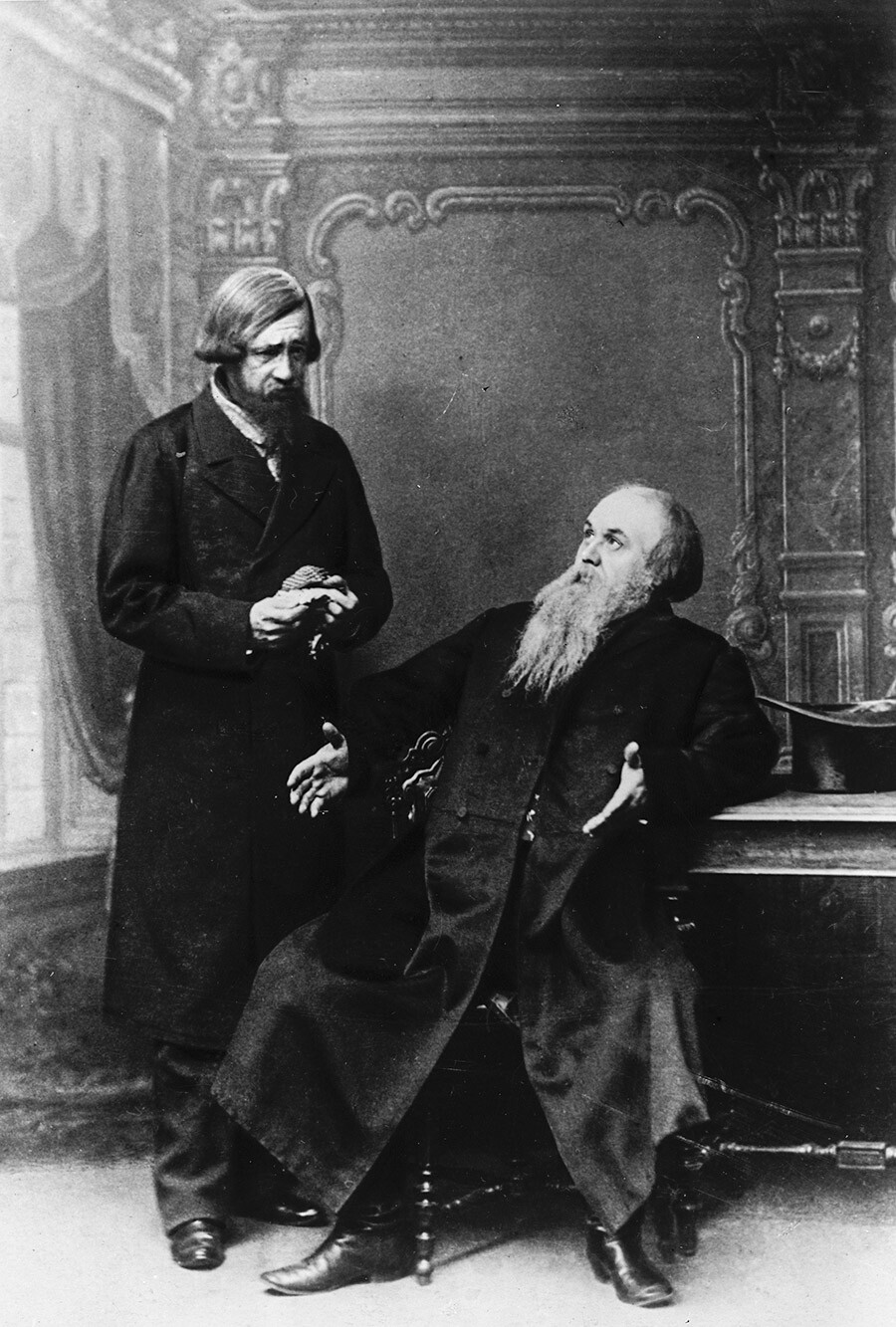
A scene from Aleksandr Ostrovsky's comedy 'It's a Family Affair-We'll Settle It Ourselves', 1861
SputnikThe play was published in a literary journal and was very warmly received, not only by ordinary readers, but also eminent Russian critics and writers. They admired the language, the three-dimensional characters and the techniques of dramatization to be found in the play. Leo Tolstoy even observed that the comedy was a miracle and Ostrovsky himself “a brilliant dramatic writer and I mean that in earnest”.
Ostrovsky’s entire oeuvre was not built on lofty tragedy or classical roles. He didn’t write about high society or sublime subjects. On the contrary, he showed the ordinary lives and everyday concerns and problems of the merchant class and common folk.
Ostrovsky knew this material well. His father, a lawyer, wanted his son to follow in his footsteps, but Alexander was expelled from Moscow University in his first year there. Nevertheless, he didn’t escape a legal career - his father arranged a job at a court of law for him, where Ostrovsky observed the commercial litigations of a whole variety of people, including members of the petite bourgeoisie, merchants, industrialists and storekeepers. What he saw inspired him to write plays that were not only entertaining, but incredibly believable and archetypal.
Emperor Nicholas I didn’t like Ostrovsky’s first play and banned it from theatrical production. But, in 1853, one of Ostrovsky’s subsequent plays, ‘Stay in Your Own Sled’, was accepted for staging at Moscow’s Maly Theater (located adjacent to the Bolshoi Theater).
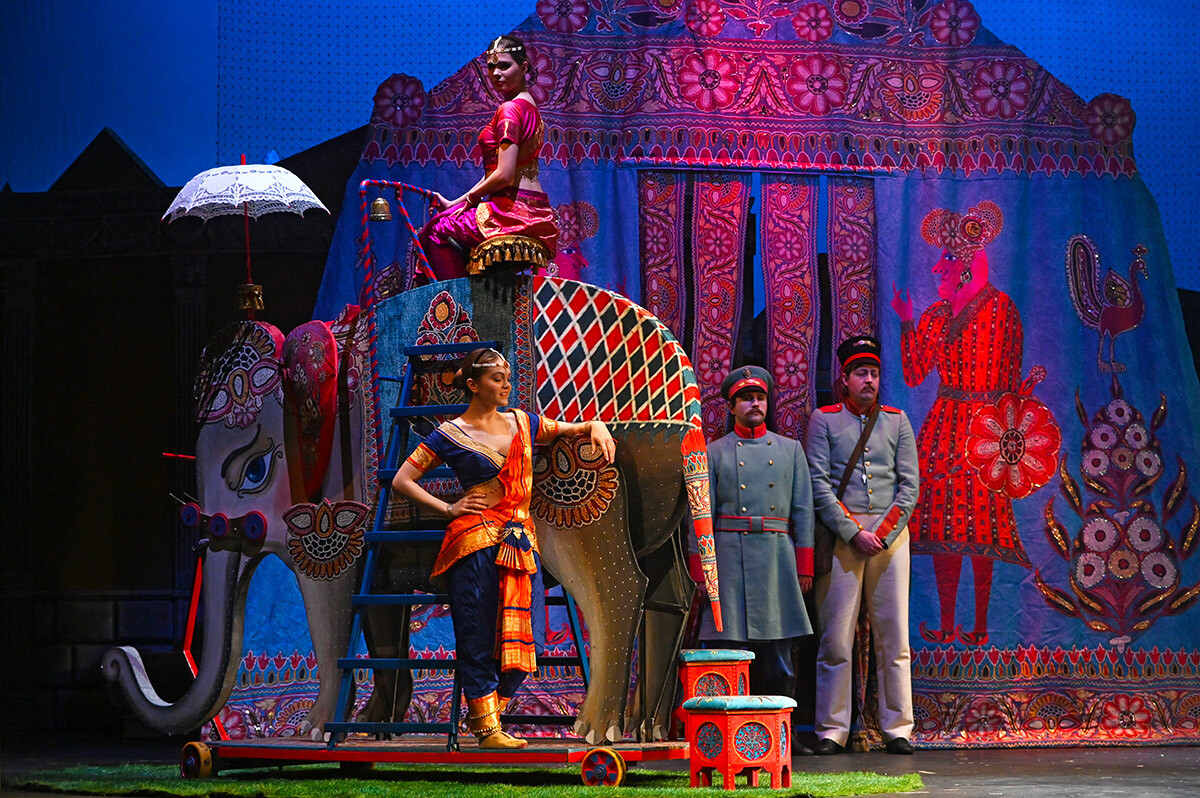
A scene from the play 'An Ardent Heart' by Alexander Ostrovsky at the Maly Theater
Vladimir Fedorenko/SputnikHe, subsequently, wrote more than 50 dramas and comedies and premieres of his plays were held in Moscow’s Maly Theater and St. Petersburg’s Alexandrinsky Theater over a period of 30 years.
Among Ostrovsky’s works are such masterpieces as ‘The Storm’, ‘Without a Dowry’, ‘Poverty is No Vice’ and ‘Wolves and Sheep’. And productions of the majority of his plays continue to be staged in theaters throughout Russia today. Dozens of his works have also been adapted for the big screen.
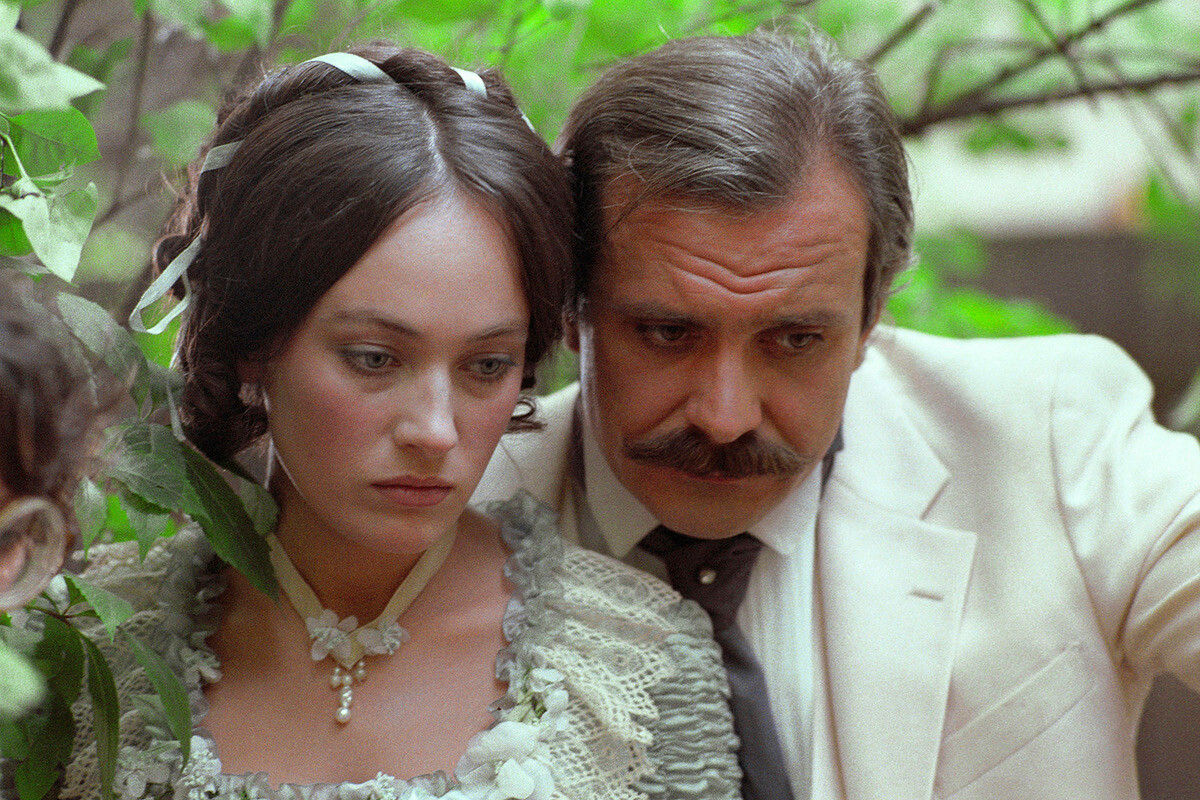
A still from 'A Cruel Romance' movie based on the Ostrovsky's play 'Without a Dowry'
Eldar Ryazanov/Mosfilm, 1984Among the most well-known ones are the Soviet movies ‘Balzaminov’s Marriage’ (1964), ‘A Cruel Romance’ (1984) and also the fantasy movies ‘The Snow Maiden’ (1968) and ‘After the Rain, on Thursday…’ (1985).
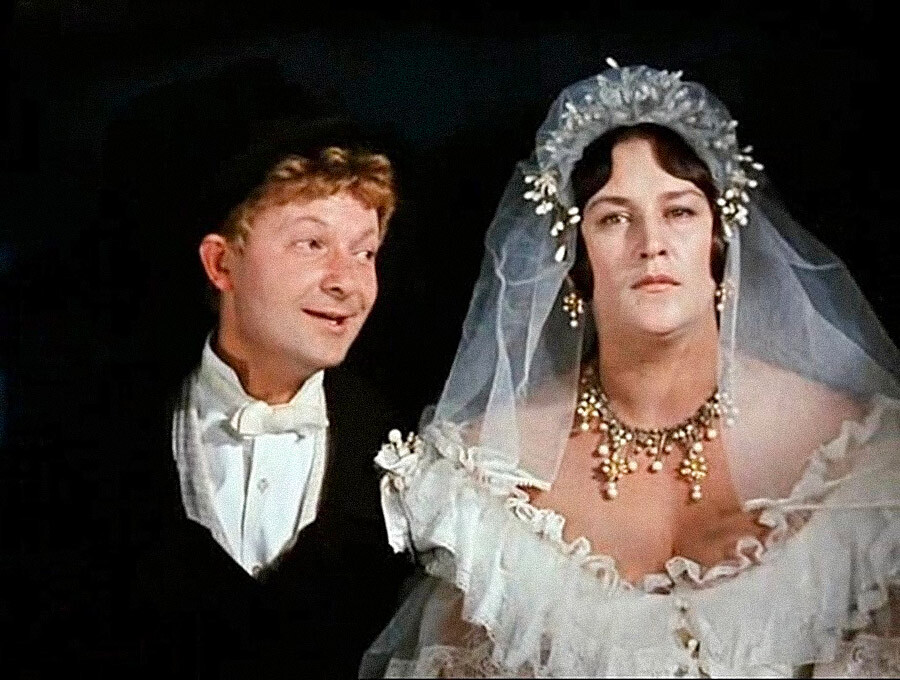
A still from 'Balzaminov's Marriage' movie based on the Ostrovsky's plays
Konstantin Voinov/Mosfilm, 1964All his works have a distinctive quality to them and are notable for the originality of their dramatizations and their quintessentially Russian subjects and characters.
Until Ostrovsky arrived on the scene, lofty classical tragedies by the likes of Shakespeare and Moliere were the staple fare in Russian drama theaters. As far as Russian plays were concerned, Alexander Griboyedov’s famous comedy ‘Woe from Wit’ and several brilliant comedies by Nikolai Gogol had already made their appearance and a piece or two from Pushkin was staged, but there was very little Russian material for the theater.
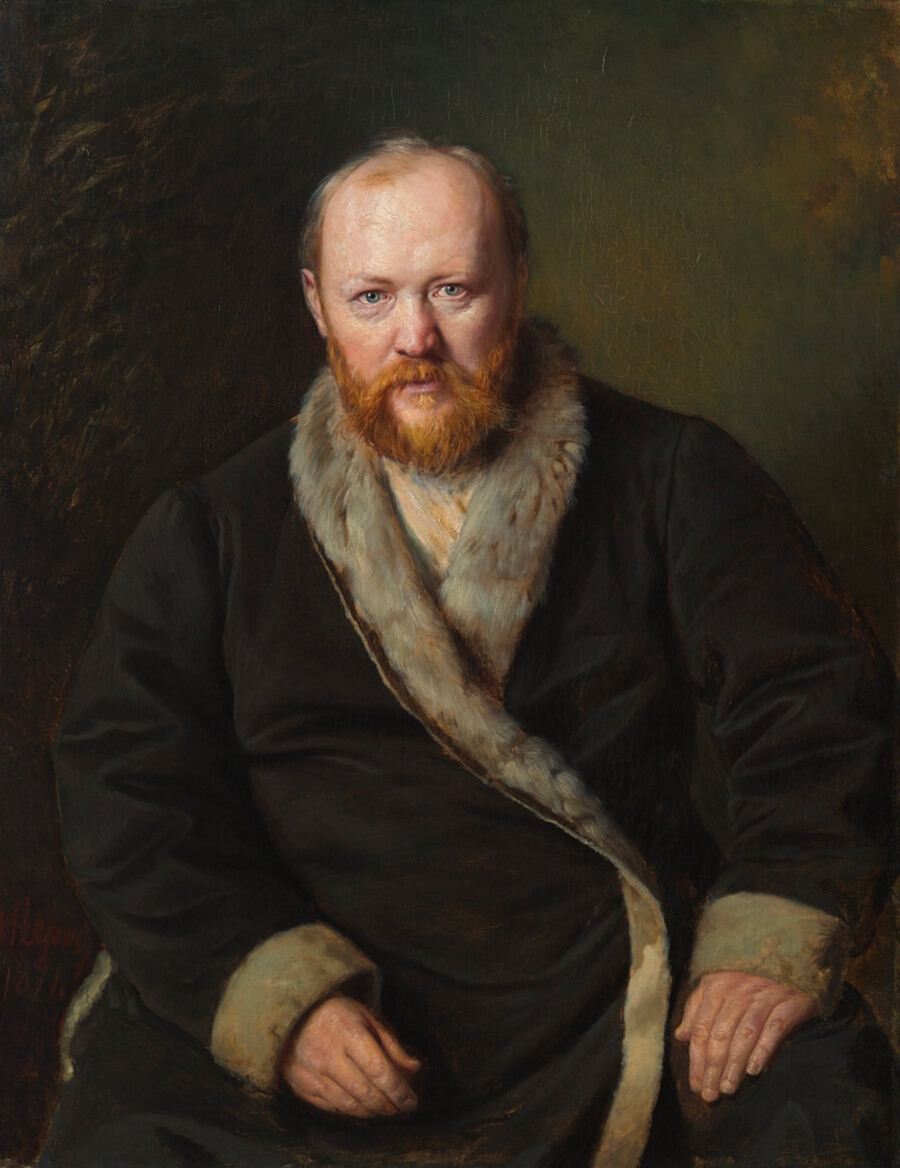
Vasily Perov. Portrait of Alexander Ostrovsky
Tretyakov galleryOstrovsky played a genuinely transformational role in Russian theater. He not only wrote a huge number of original plays, but he changed the whole approach to theater and injected it with a greater variety of subjects and characters. He also urged that more attention be paid to acting technique and collaborative effort among the whole company.
“A good play will appeal to audiences and will be a success, but it won’t last long in the repertoire if it is poorly played,” Ostrovsky wrote.
The major Ostrovsky play that is perhaps best known in Russia is ‘The Storm’ (1859). It is one of the first works to raise the theme of the oppressed status of women. The main female character, Katerina, lives in the extremely patriarchal family of her husband, who behaves coldly towards her and she is forced to submit to her despotic mother-in-law. Eventually, she falls in love with another man and cheats on her husband, but, unable to cope with this moral lapse, she throws herself into the Volga River and dies.
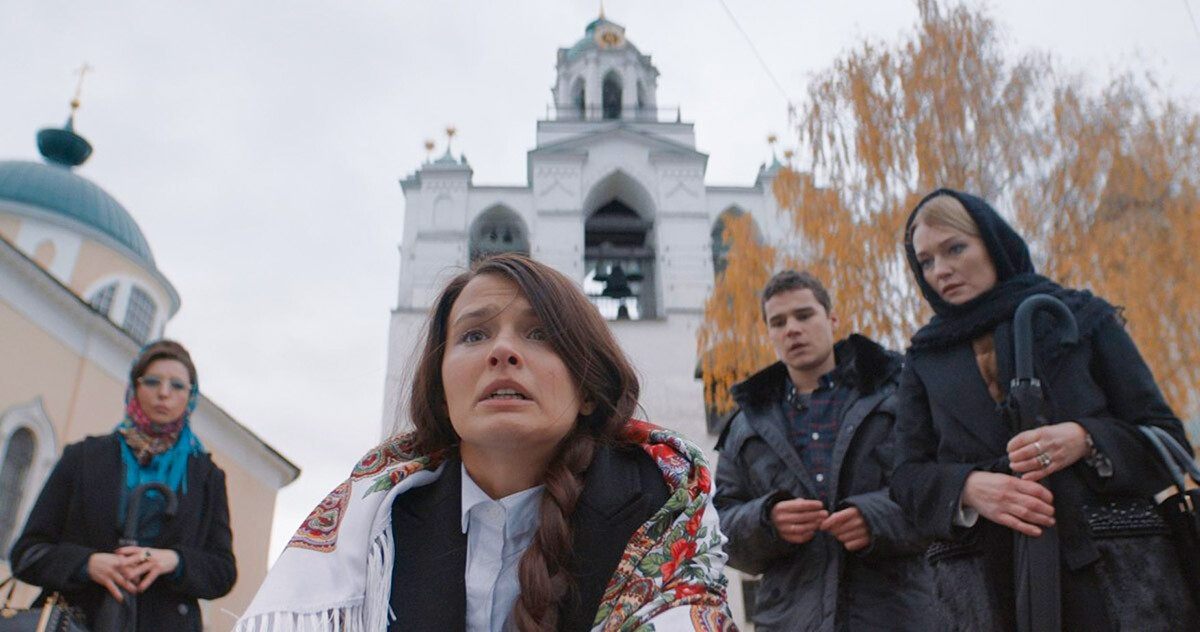
A still from 'The Storm' movie
Grigori Konstantinopolsky/Premier Studios, 2019‘The Storm’ aroused a strong reaction from public and critics alike. Journalist Nikolai Dobrolyubov wrote a celebrated article about the play ‘A Ray of Light in the Kingdom of Darkness’, whose title has become a stock phrase. He regarded Katerina as a victim of the old world of the backward merchant class and revels in her audacity in standing up to this world. He even regards her suicide as heroic and the only possible way out of this “kingdom of darkness”.
The play was staged at the Maly Theater to great acclaim: It is, to this day, regarded as a benchmark of Russian drama and its characters have come to represent generic human types.
Dear readers,
Our website and social media accounts are under threat of being restricted or banned, due to the current circumstances. So, to keep up with our latest content, simply do the following:
If using any of Russia Beyond's content, partly or in full, always provide an active hyperlink to the original material.
Subscribe
to our newsletter!
Get the week's best stories straight to your inbox